Puccini – Suor Angelica
Suor Angelica – Monica Zanettin
La Zia Principessa – Silvia Beltrami
La maestra delle novizie / La suora infermiera – Dilan Şaka
Suor Genovieffa / La seconda cercatrice / La seconda conversa – Greta Doveri
Suor Osmina / Suor Dolcina / Una novizia – Zhou Fan
La prima cercatrice / La prima conversa – Laura Lolita Perešivana
La badessa / La suora zelatrice – Elena Caccamo
Coro di Voci Bianche di Milano, Coro Sinfonico di Milano, Orchestra Sinfonica di Milano / Vincenzo Milletarì.
Concert performance.
Auditorium di Milano Fondazione Cariplo, Milan, Italy. Friday, May 31st, 2024.
This concert performance of Suor Angelica is the Orchestra Sinfonica di Milano’s contribution to this, the centennial of Puccini’s demise. At just an hour of music it was rather brief, particularly given that tickets were charged at regular prices. For those who missed this evening’s performance, there’s a Sunday afternoon repeat. Unfortunately, the hall was rather empty due to the performance also coinciding with a transit strike. The orchestra invited Monica Zanettin to incarnate the title role with Silvia Beltrami as the Zia Principessa, under the direction of the exciting young Italian conductor and opera specialist, Vincenzo Milletarì, with singers from the Accademia Teatro alla Scala in the remaining roles.
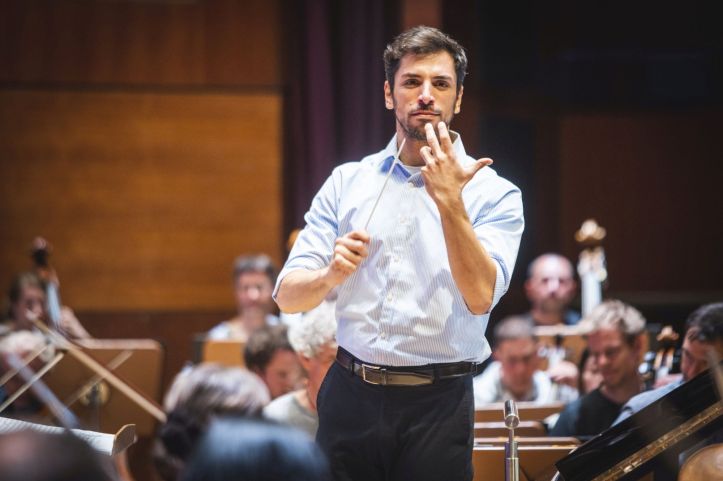
This was a concert performance with singers in evening dress. All except for Zanettin sang from memory, with the singers making entrances and exits across the stage, and the choruses ranged behind the orchestra. The benefit of it being a concert performance was getting to see Milletarì at work. On the evidence of this evening’s performance, he’s definitely a singer’s conductor. His gestures are most expressive. One can see him shaping and building those long, lyrical lines in the best Italian tradition – the love for this score evident in the beauty of phrasing he brought out. The orchestra responded with superb playing for him: strings of feather-light, gossamer beauty, the subdued half-lights in the brass brought out with unfailing accuracy. There was actually something quite fragrant in the way that Milletarì brought out the colours in the orchestration, making this score sound almost Debussy-esque in its impressionist complexions. His conducting was always sensitive to the singers, particularly since the orchestra was on stage – he always allowed the singers through. The choruses, with adults prepared by Massimo Fiocchi Malaspina and children by Maria Teresa Tramontin, were enthusiastic. The adult chorus was a little grainy of tone, although generally precise in attack, while the children added a radiant halo to the sound in those closing pages.
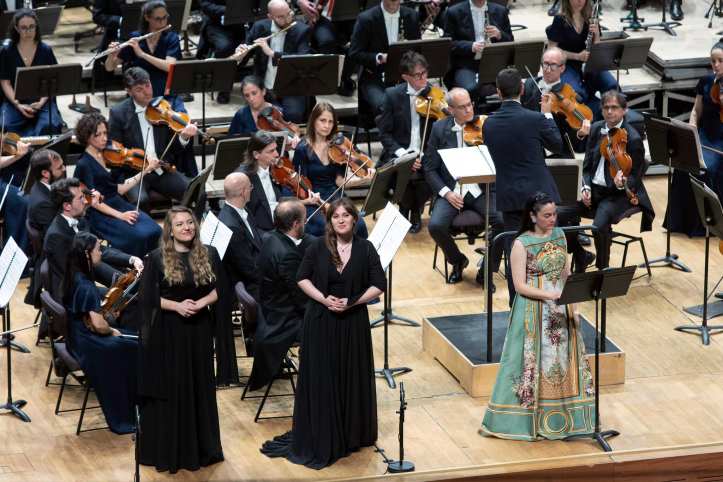
This was my first time hearing Zanettin, although I’m familiar with her name. She has a striking instrument, dark and silky in tone with a refreshing, fast vibrato. She has an implicit understanding of the Puccinian style, phrasing the music with the utmost naturalness. It did sound that with more familiarity with the score, she would be likely to make more out the text – we lacked that ultimate in wrenching, emotional power that we might hope for. That said, she sang her ‘senza mamma’ with honesty and warmth. The top is also rather short, the high floated writing betraying some effort. Still, it’s a distinctive voice and one I would very much appreciate having the opportunity to hear again.
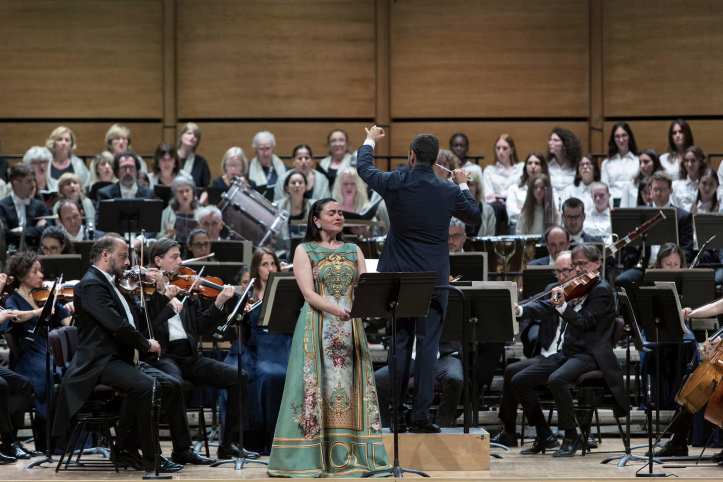
Beltrami gave us a striking Zia Principessa, making use of a very generous and resonant chestiness. The registers do appear to have parted company, while her pitching in the upper part of the voice was rather creative and not quite what one would expect based on the score. It also seems to lack resonance up there. She certainly has stage presence, however, and the lower part of the voice was most imposing.
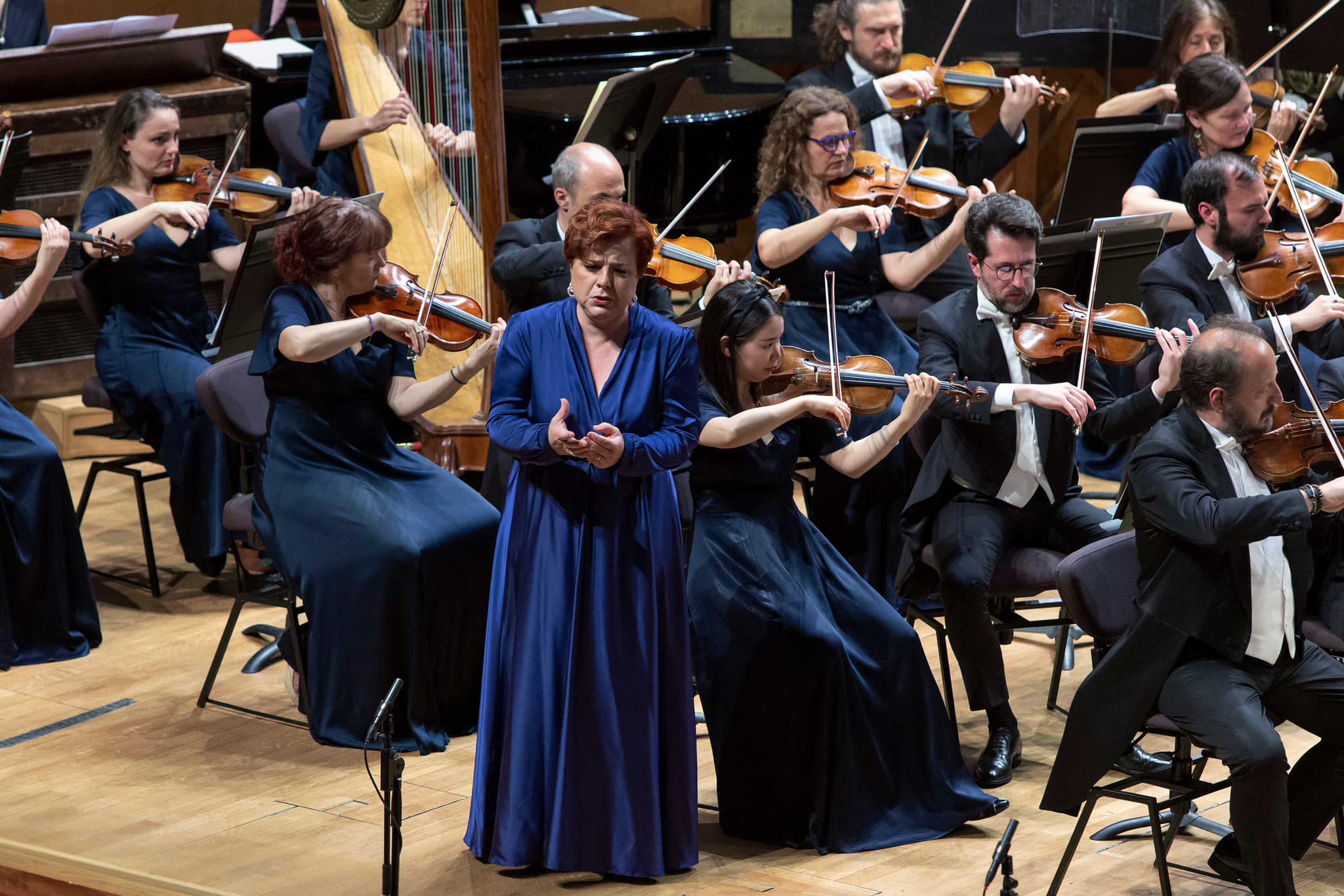
The remaining cast members should some real promise. In her roles, Greta Doveri displayed a bright, lyric soprano of strawberries and cream tone – I imagine she will become a lovely Susanna in due course. Dilan Şaka sang her music in a pleasant, chocolate-toned mezzo, while Zhou Fan sang her roles with confidence. Elena Caccamo also has a distinctive and piquant mezzo.
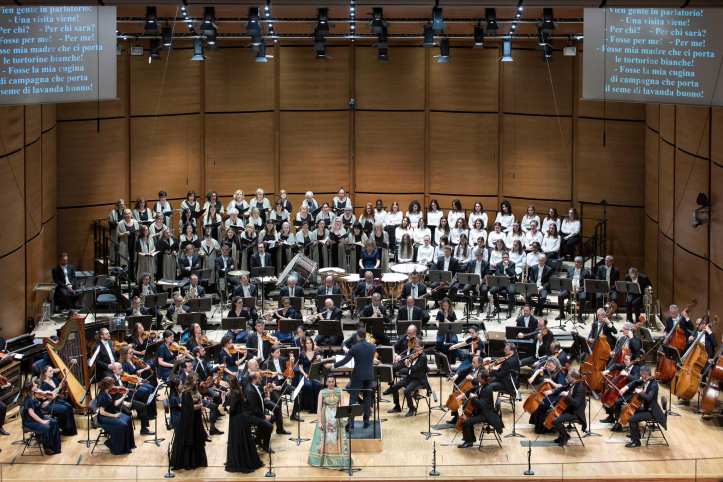
While short, this was certainly a rewarding evening, thanks to Milletarì’s riveting conducting and Zanettin’s generously-sung Angelica, with orchestral playing that offered technicolour brilliance of sound. It was a shame then, that the hall was so empty due to the transit strikes, and more so that the people in the row behind me and across the aisle (both pairs d’un certain âge) would also just not stop talking. Did they have any consideration for the fact that their actions deranged those around them? Those attending Sunday’s performance will have much to enjoy before their aperitivo, and the cast was received with warm cheers at the close.
[…] Lida and gave us a singing lesson. In Milan, Vincenzo Milletarì gave us a glorious Suor Angelica, demonstrating a profound understanding of the Puccinian style. In Rome, I also saw a […]
[…] La bohème, was the presence of Vincenzo Milletarì in the pit. Having seen him conduct a sublime Suor Angelica in Milan last year, I was very keen to have the opportunity to hear him in a much more substantial […]
[…] intense on the musical values. Having heard him lead two superb performances of Puccini operas in Milan and in Stockholm, I was very keen to hear Vincenzo Milletarì in Verdi. He was absolutely […]